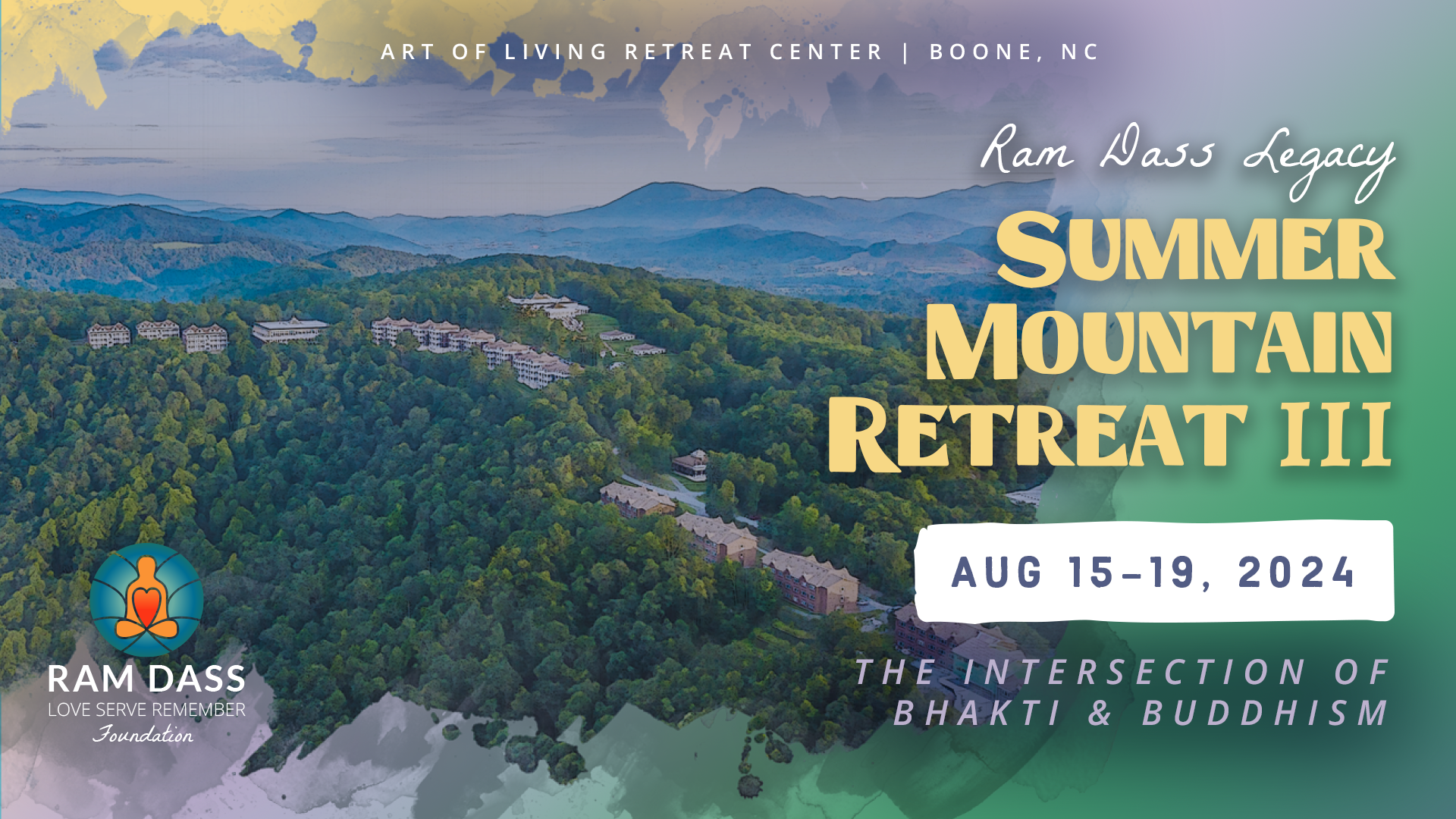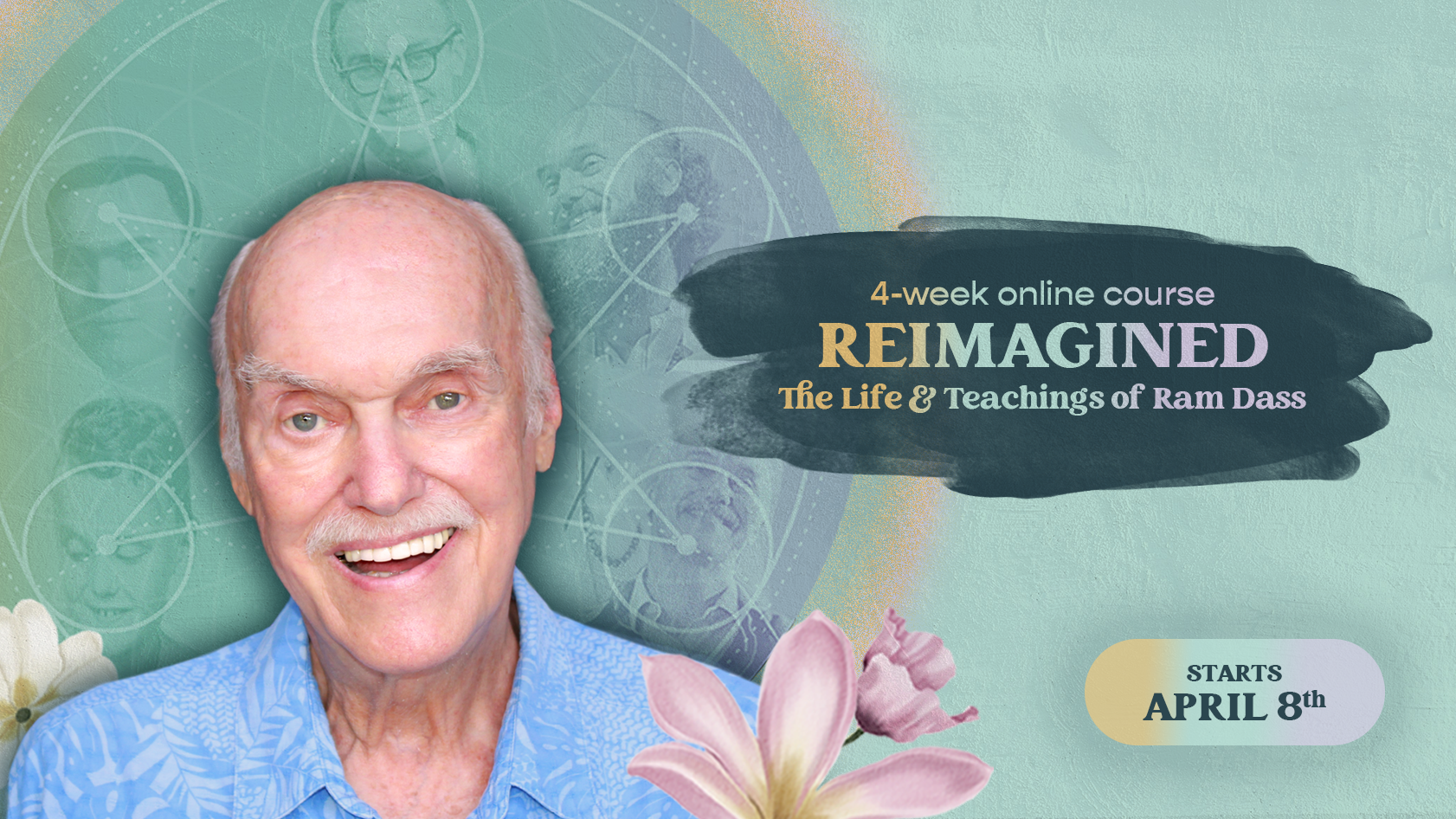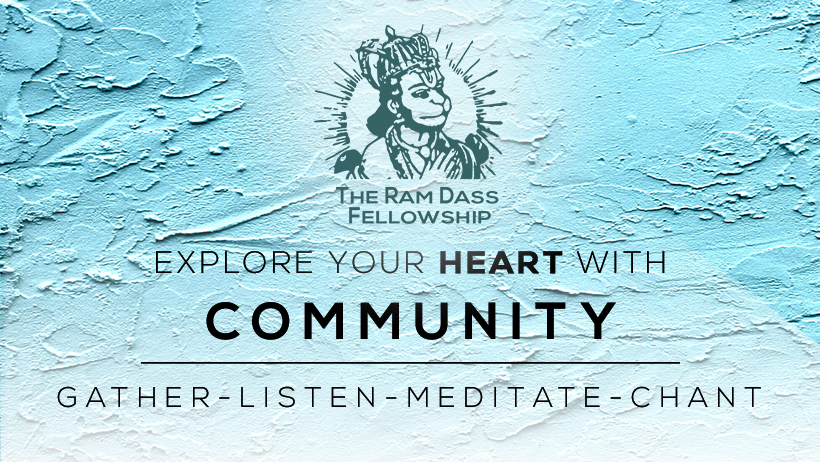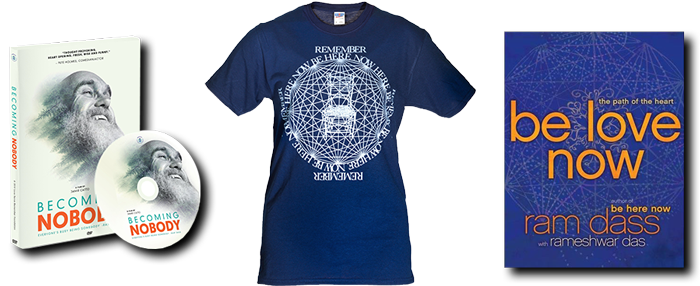God Plays the Lila
In my youth I had taken a vow not to get married, from the day my aunt, who had raised me, died. My family tried to get me married, but I was adamant. When I was between the ages of twenty-five and thirty, Maharaji would tell me not to get married and told people that I was tubercular or had cancer, and that I was dying. In my thirtieth year, Maharaji asked me, “Do you want to get married?”
“No,” I answered. Maharaji then admired my shirt and asked to have it. He asked what sort of shirts I had before I started college, and I replied that I had only one old, torn shirt, but it served the purpose. Maharaji then asked how many I had now, and I said twelve. When asked why I had so many, I replied that as a teacher in public school, I had to maintain a certain code of dress or I’d be fired. Maharaji said, “No, no it is not this. Now you want to get married. You could have done with one shirt. If I ask you to marry, what will you do?” I told him, in that case I’d have to marry, but the responsibility would be Maharaji’s. For eight days Maharaji continued to press for my marriage.
On the eighth morning, Maharaji set off to catch the train. On the way to the station, he turned off the road to a young woman’s house and beckoned me to go in with him. There was kirtan going on and Maharaji was sitting in the puja room. I was called in and so was the young woman. Maharaji asked if I’d marry this girl, but I refused. Maharaji said, “If I asked you to?” I replied that the responsibility would be Maharaji’s. First Maharaji said, “I’ll not do it.” Then he said, “All right, all right. I’ll solemnize the marriage!” He put tilaks on our foreheads and said, “There, I’ve got you married! Do you accept it?”
Later Maharaji said, “Don’t think that I or you have done this. God plays the lila in his own way. No role of mine, none of yours. It was to happen! My wife and I have been very happy for over twenty-five years.
– Excerpt from Miracle of Love: Stories about Neem Karoli Baba
The Seed From Bodh Gaya
We were staying at this hotel in Bombay, and Maharaji would come to see us, or we would go to this apartment building in Bombay where this devotee and his married daughter lived.
There was a big bed in the living room and Maharaji would lie down on the bed. He’d sit up, he’d lie down, he’d turn over, he’d lie this way and that; hours would go by in silence and I’d just sit there staring at him, or sit there with my eyes closed. And nothing would be talked about, we’d just hang around.
Two years before, he had disappeared and when he would disappear, the Westerners would go do other things in India until he showed up again. This time when he disappeared we went to Bodh Gaya and were doing meditation courses. What else do you do when your guru’s not around? There were only two television channels at the time, so we had to do something.
While we were there, we visited this beautiful, very old lama, who was the teacher of the Dalai Lama’s teachers. He was a very respected, old lama. And he was really special. We went to see him in his room. He was very sweet to us, and he tried to give us a mantra. But he had no teeth. So he’d mumblingly repeat the mantra. And then, we would repeat it back – well, we didn’t know what we were repeating over and over again. It was so insane. Finally, he got somebody to write it down for us.
So, as we were leaving, he reached into his shirt and he brought out his really old leather pouch. And he opened it up, and out from the pouch he took a seed from the Bodhi Tree that he’d been carrying, a special seed from the tree in Bodh Gaya where the Buddha was enlightened. So this was a seed from that tree, and he had it in his pouch. And he takes it out, and gives one to me and one to a couple of other people there.
I went to put it away, to keep it. And he said, “No, you have to eat it.” So I ate it, right there – and I forgot about it. Then I left Bodh Gaya, and then we found Maharaji. Two years go by. Now I’m in Bombay in this Parsi apartment building with Maharaji, sitting for hours and hours in silence, and all of a sudden he sits up on the bed and said, “Give me the seed the lama gave you! Give me the seed!”
“What lama? What seed? I don’t know what lama!”
“Give me the seed, give me the seed!”
It seemed so important to him; I couldn’t remember what lama – I had seen a hundred lamas over the years. What seed – I didn’t know any seeds. Finally: Oh, that! I said, “Maharaji, he made me eat it then, at that time.” He goes, “Thik hai, very good, now you’ll be enlightened,” and he bopped me on the head and went back to sleep.
– Krishna Das
Million Dollar Darshan
In February of 1973, I met Neem Karoli Baba at the Hanuman mandir on Parikrama Road in Vrindaban, one day before he left for Kainchi Dham. At that time, I had only $300 in American Express checks, and $100 I would exchange for rupees in New Delhi before leaving for Kumoan. I decided to play a game with myself and not count the money again – cashing checks when I needed, but avoiding fingering the bills or looking too carefully into the envelope where I’d secreted them. Purchasing necessities, and allowing myself to be as generous to anyone in need as such generosity had been offered to me in the previous months, I would go in to Nainital to change money and buy a few things every few weeks. Each time, I continued with my little game, cashing two checks, then three, then a few more. After several bus trips, I tired of the game and of cashing money and decided to cash them all and be done with it.
Today I still remember standing at the State Bank of India, where a tall handsome gentleman with a mustache stood behind the polished counter as I withdrew the checks from the envelope and counted them for the first time in months. I had no idea how much remained: perhaps as much as $100 or as little as $40. But when I removed them, there were fifteen American Express checks laid out on the counter before me, the exact amount I’d left New Delhi with months before. My shock must have been apparent, for the Pahari gentleman looked concerned and asked, “Is there a problem? Are you missing some checks?” I asked him to count them again for me. “$300. How much would you like cashed?” he asked. I was speechless. “All of them,” I whispered, feeling suddenly rooted to the ground.
I returned to Kainchi on the bus in a deep state of wonderment. I’d cashed numerous checks in Nainital since arriving at Baba’s ashram. I had not miscounted; I’d cashed the checks and spent the money. That afternoon back at Kainchi Dham, Baba-ji was very funny, continually motioning to me, laughing and winking. He called out across the courtyard, “Kay, paisa mil gaya?” (What? Did you get the money?) I nodded that I had, and he laughed. I kept the checks that had materialized in my envelope a secret, fearing legal repercussions, as if Maharaji had somehow manipulated the American Express Company. Now it seems silly, but then only 20, I cherished the idea that I had to protect Baba-ji’s confidentiality, even long after his Maha Samadhi. I was in India for several more months after Maharaji left his body and the bag of rupees I’d cashed that day never ran out.
– Ram Rani Rosser
Take It To Delhi
We were up in the mountains visiting with Maharaji at Kainchi. The eight-year-old VW bus was doing yeoman’s service each day, moving the Western devotees from Nainital down the mountain to Kainchi each morning and back up each evening. Soon there were too many for the VW and some had to go by public bus, but still twenty or so managed to squeeze into the VW or on the rack on top, and, as VWs do, it smiled gamely and did its thing. But one day, just at the town of Bhowali, the VW stopped. It wouldn’t start again. So we left it there and the next day told Maharaji. And he said, “Take it to Delhi.” All the way to Delhi, a hundred and ninety miles away? That seemed absurd to me. Couldn’t someone local fix it? All he would say was, “Take it to Delhi.”
That evening back in Nainital I spoke to the Sah family who owned the hotel. They knew of a mechanic, and I arranged for him to go and see the car. A day later he looked at it but could not start it. So again I told Maharaji and again he reiterated, “Take it to Delhi.” Then I told him that in Almora, thirty miles away, was a German economic project and they used VWs and had a service man. Maybe I could get him to come over. Maharaji said, “Take it to Delhi.”
I wrote to the people in Almora asking them to contact the German repair center, and after letters back and forth that took the better part of two weeks, it became clear that no incentive would get the mechanic to come to Bhowali and that they weren’t even interested in looking at it if I got it to Almora. I told Maharaji all this, and you can imagine his response: “Take it to Delhi.” So again I went back to the mechanic in Nainital and again he went to look. This time he got it running and drove it up to Nainital, but on the outskirts of town it stopped and he could not get it going again. Enthusiastically, I reported this progress to Maharaji, but his instructions had not changed.
It was now more than four weeks since the breakdown and it became evident that the Nainital mechanic just couldn’t fix the car. Since there was nothing else to do, it was decided to “take it to Delhi.” A truck was rented, complete with Sikh drivers, and the car was loaded aboard. With Krishna Das as passenger, they left for Delhi. Krishna Das told hair-raising tales of the journey – of the drinking and of moving the VW from one truck to another, and so forth – but finally it got to the repairman at Delhi. The VW was rolled off the truck and the repair man walked over, opened the engine compartment, took one look, connected one wire, and the car started and ran perfectly.
After that the term that came to be synonymous with my lack of surrender was, “Take it to Delhi.”
– Ram Dass (excerpt from Miracle of Love: Stories about Neem Karoli Baba)
Only Maharaji Knows
Babaji used many methods to mitigate the sufferings and hardships of people who visited him. They were seldom done in the public gaze, but they were going on every day. Some poor farmer would come and say, “Out of my one pair of bullocks, which is my only source of living, one has died and I have no money to purchase another.” An old woman would come and say, “My daughter has reached marriageable age, but I have no money to pay for her marriage.” Another comes with his tale, “My brother is suffering from tuberculosis and I have no money for his treatment.” Such things would go on all the time. Few would leave disappointed. It was never publicized, but help was always coming from him in some form or other.
Leaving aside physical suffering and mental torture, there was another kind of deeper and more painful suffering which Babaji could not neglect. Many times it was to rescue the helpless that he had to run away like a vagabond. Sometimes unimaginable calamities come to people — someone has died, someone has been thrown out of another’s heart, or a severe shock or disappointment from one’s near or dear ones has unhinged them totally. Pain of the body or the mind can often be tolerated, but pain of the heart becomes killing. Faced with such a disaster or disappointment, they are stranded; there is no one to whom they can look for support.
Very few of us are so devoted to God that we truly believe that the help we need will come from there. We need some tangible response to our cries. Our cries reached Baba and made him rush to us — seen or unseen by others. He came and talked to us, not quoting from scriptures, but in his own sweet way. He consoled us with pats on the head, whispered words of cheer accompanied by his infectious smile, trying to bring a smile to our face. We do not know how many tears of men, women and children he wiped away with his sweet words, compassionate touches, and soothing smiles. Only Babaji knows…
– Excerpt from The Near and the Dear by Dada Mukerjee













Take it to Delhi, I love it! Wonderful excerpt, I will have to add this book to my reading list.
Nice one, Dr. Dick !
You are one mischievous man. Who goes to India to be with their guru and not listen to them? LOL. You must have been challenging for your parents; I guess all children are. It’s all so simple, surrender that is. Did you listen to everything he said after this? I love your stories and the way you write you teach by your follies. I know that I can relate. It reminds me of the time when I was 16 and a friend offered to give me a 60’s chevy truck in perfect condition except for the damaged drivers door. All I could see was the damaged door that needed to be replaced not the free truck and i didn’t take it.I kicked myself after but funny enough the experience opened my eyes to everything. I look at the whole package now not just the damage when experiencing things.
Thanks for this one, Baba, cracked me up. You probably already know this, but if not, the Sufi traditional teaching method utilizes The Teaching Story. It’s a universal method in all of the Mahayana schools in the world, and I am SO glad that it is… I LOVE the funny ones. This one brings a playful question: just how long, and how many stories like this one, did it take for you to learn what “Sat” means, in the term “Sat Guru”? Ah, the long-experienced, long-established Sat Guru, and the wonders that they can work. :>)
I just wantes to say happy birthday, dear baba Ram Dass. I love you very much. Dana
I love BABA .I read Ramdas Ji Story of BABA Swolowing pills it was in 2005 .I been very close to BABA with My heart. Just need lots of blessings I know Ramdas ji knows and BABA. Waiting for Miracle before it’s too late JAI SHREE RAM 😢
I revere Baba and go to visit Baba’s samadhi sthal at Vrindavan from time to time. It is peaceful to stay there.